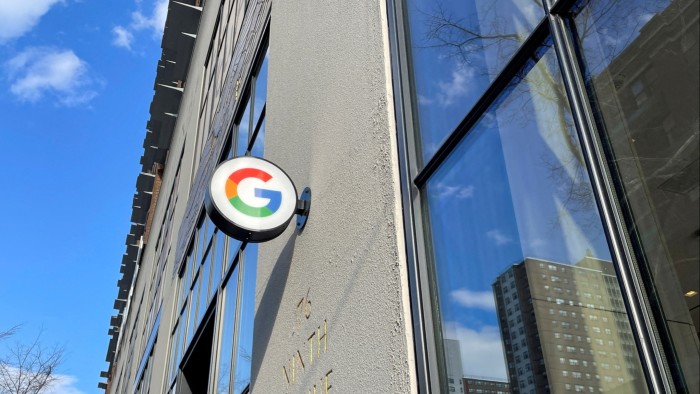Physical Address
304 North Cardinal St.
Dorchester Center, MA 02124
Physical Address
304 North Cardinal St.
Dorchester Center, MA 02124

Digest opened free editor
Rola Khaleda, FT editor, chooses her favorite stories in this weekly newsletter.
One of the most annoying things about artificial intelligence robots like Chatgpt is the extent of hesitation in their saying “I don’t know.” A similar deficit to speak clearly affecting the broader technology world. Recently, Google Parent Alphabet cost $ 200 billion.
This was the amount that was almost eliminated from the market value of the search giant on Tuesday after it announced the planned capital spending this year.
The amount is 50 percent of what the company spent last year, an increase indicated by the need to constantly develop artificial intelligence. As is always the case, there have been little details about the place where spending or the profit would go.
Alphabet itself only has to blame if this number is a surprise. Analysts expected only $ 60 billion of spending this year, according to Visible Alpha. Unlike some of its competitors, Alphabet does not give “instructions” to maintain investor expectations within a reasonable scope. But this secrecy is an option, not a necessity.
With technology companies raising bets on artificial intelligence and cloud computing – Microsoft plans to spend $ 80 billion in their financial year that ends in June, the Facebook Meta owner has allocated up to $ 65 billion in 2025 – and the absence of details about what they buy begins in Extension of credibility.
Alphabet Anat Ashkenazi said that Google’s purchases will often be servers and data centers. But there was nothing on any kind, from any suppliers or where they would be present.
Other industries have worked for a long time. Although technology may not want to compare themselves with more dirt sectors, mining companies have been learned in the difficult way where investors are not tolerated forever.
Rio Tinto and BHP, for example, tells a “return on the capital operating” as a sign of discipline. Investors closely monitor, as it should – large average mining projects decline by 79 percent on the initial budgets, according to MCKINSEY estimates.
Wall Street Banks, too, met investors in the middle of the road. Goldman Sachs, City Group and their peers set goals for future returns on property rights, which is not always enjoyable for those who participate below.
Goldman missed the 14 percent obstacle of last year. Jane Fraser, City President, was forced to reduce her goal for 2025.
If Alphabet wants to avoid future market disturbances, investors may always give some numbers they invoke. Its desired returns can be drawn on capital expenses or targeting a certain amount of revenues for each dollar invested. Even the distant goal is better than nothing. Otherwise, investors will start doubting that, such as the dismantling of Chatbots, the silicon valley is less than honest about what it does not know.
john.foley@ft.com